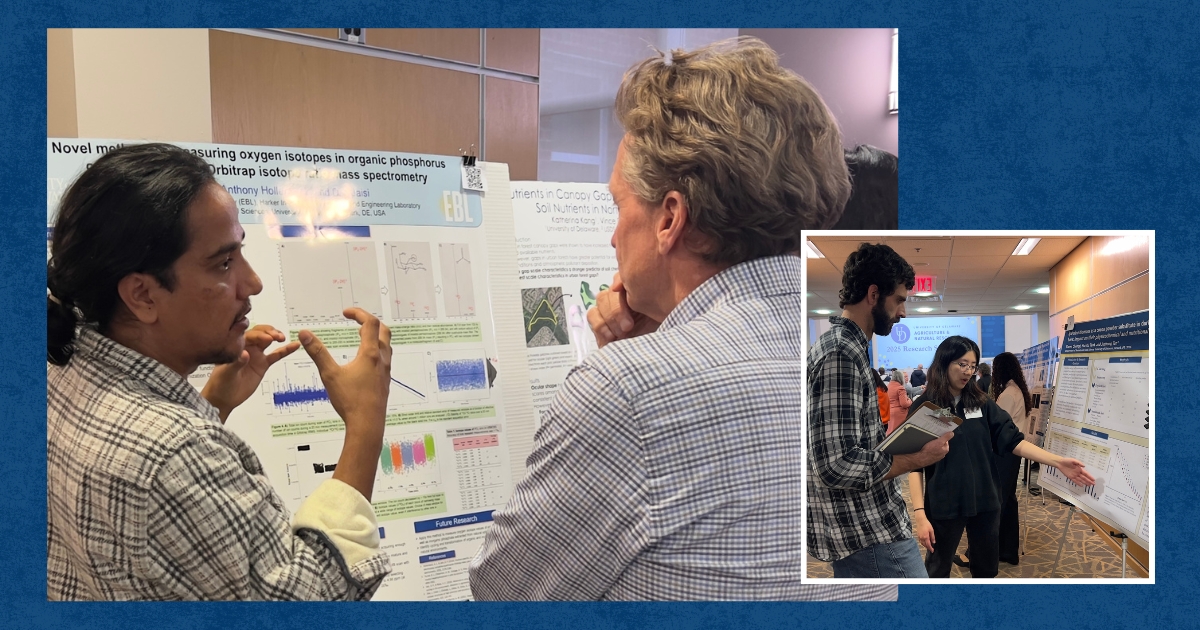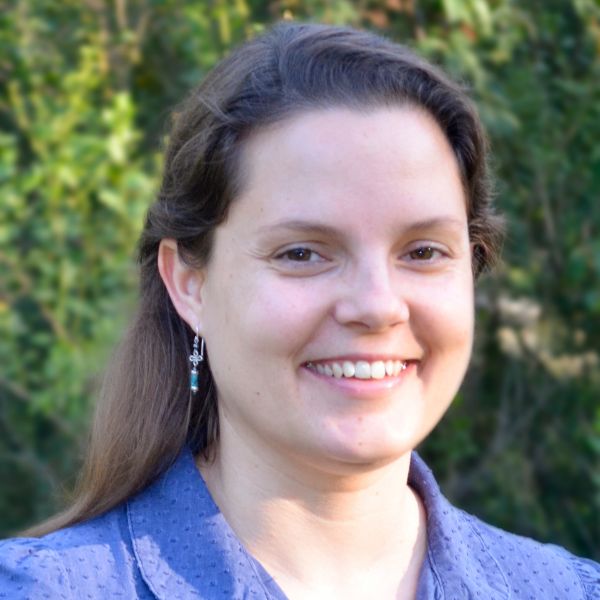
WELCOME TO ENTOMOLOGY AND WILDLIFE ECOLOGY
Our department offers outstanding academic programs for undergraduate and graduate students preparing for research, teaching, and extension careers in entomology, ecology and wildlife conservation.
Our teaching, research, and extension efforts emphasize whole-organism biology, conservation biology, and the interactions between humans and other species.
Our undergraduate programs

Ecology Woods FUND
Ecology Woods is a 35-acre forest on the southern edge of UD’s Newark Farm, adjacent to Route 4 and the UD Athletics Complex. This location has been a unique site for ecological research, conservation, and student learning since the 1960s.
It was Dr. Roland Roth, a faculty member in the Department of Entomology and Wildlife Ecology, who protected and nurtured this space for nearly 35 years.
Find out how you can help preserve Dr. Roth's work with a contribution to the Ecology Woods Fund.
What's new?
Featured video
Insect ecology and conservation major Em Beauchamp is "The Moth Defender": youtube.com/watch?v=07dHdS3uNVs
The Moth Defender
Em Beauchamp studied how pesticides used to control mosquitos can also affect caterpillars. She studied a population of Io moth caterpillars, with the help and supervision of UD ecologist Douglas Tallamy. Learn about our unique insect ecology and conservation major.
Latest news
-

Showcasing research across the College of Agriculture and Natural Resources at the 2025 student symposium
December 03, 2025 | Written by Katie Peikes | Photos by Katie YoungThe University of Delaware College of Agriculture and Natural Resources Fall 2025 Student Research Symposium, in its ninth year, showcased 50 research projects, covering a variety of interests and topics across the college. The annual symposium brings faculty, students and staff together to celebrate the diverse research interests of the college. -
Sticky situation
December 01, 2025 | Written by Katie Peikes | Photos by Kathy F. Atkinson | Photo illustration by Jeffrey C. Chase | Video by Max DuganUniversity of Delaware graduate student Wil Winter is trapping mosquitoes in the wild, enticing them with honey, and tricking them to give up saliva for virus testing. This will help illuminate if disease-causing agents for West Nile Virus and Eastern Equine Encephalitis virus are in the area. The method was developed in Australia. Winter, who also works for the Delaware Department of Natural Resources and Environmental Control, is hoping it can work here. -
Radar data find no decline in insect numbers—but there’s a catch
November 18, 2025 | Written by Katherine Kornei | ScienceA new study found no evidence of widespread insect decline over the 10-year period it studied. The study used weather radar data to survey insect populations and suggests bugs could be sensitive to warmer winters. University of Delaware agricultural entomologist and molecular ecologist Michael Crossley was not involved in the study, but responded to the research, saying it only captures a small part of insect life.












 Upcoming events
Upcoming events